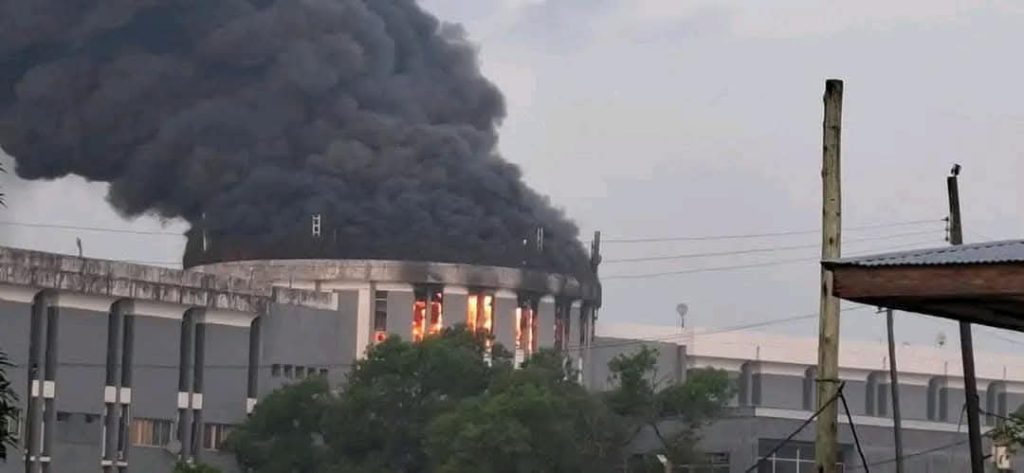Liberia’s abundant natural resources hold the promise of economic transformation, yet the nation finds itself grappling with a recurring cycle of protests, violence, and vandalism directed at foreign companies operating within its borders. These disruptions, while often rooted in legitimate community grievances, pose a significant threat to Liberia’s economic future by undermining investor confidence and jeopardizing much-needed foreign direct investment (FDI). The recent attacks on ArcelorMittal Liberia and Bea Mountain Mining Corporation underscore the precarious nature of the investment climate, highlighting the urgent need for a comprehensive approach to address the underlying issues fueling these conflicts. While acknowledging that foreign companies are not without fault, the pattern of destruction and disruption sends a clear message to potential investors: Liberia is a high-risk environment. This perception, if left unchecked, will drive investment away from Liberia and towards more stable neighboring countries, further hindering economic growth and development.
At the core of these conflicts lies a disconnect between the promises of corporate social responsibility (CSR) and the realities experienced by host communities. While companies like ArcelorMittal contribute significant funds towards national development, these funds often fail to reach the communities most impacted by their operations. The current system, which channels CSR funds through the government, has proven susceptible to corruption and misallocation, leaving communities with a sense of betrayal and fueling resentment towards both the government and the companies. This frustration manifests in protests, roadblocks, and acts of vandalism, further destabilizing the investment climate and perpetuating a cycle of mistrust. The case of Buchanan, where funds intended for community development were diverted for political purposes, exemplifies the failings of the current system and highlights the urgent need for reform.
The current approach to managing CSR funds is not only ineffective but also counterproductive. By failing to deliver tangible benefits to host communities, it exacerbates tensions and creates an environment conducive to conflict. This, in turn, deters investment, undermines economic growth, and perpetuates the cycle of poverty. A more effective approach would involve empowering communities to directly manage and allocate CSR funds, ensuring that these resources are used to address their specific needs and priorities. This shift towards local ownership would not only improve the effectiveness of CSR initiatives but also foster a sense of partnership between companies and communities, promoting stability and encouraging long-term investment.
To achieve this transformation, Liberia must implement comprehensive reforms that prioritize community engagement and transparency in the management of CSR funds. This includes establishing clear legal frameworks that mandate direct collaboration between companies and host communities in planning and executing CSR projects, creating community-managed development funds with independent oversight bodies, and implementing mechanisms for regular public reporting on CSR expenditures. These measures will ensure accountability, build trust, and demonstrate the tangible impact of investments on local communities. By shifting from a system that breeds resentment to one that fosters collaboration, Liberia can create a more stable and attractive investment climate, ultimately benefiting both companies and communities.
The success of these reforms hinges on the government’s commitment to strengthening security and upholding the rule of law. Protecting investments requires decisive action to address the underlying causes of instability, including strengthening law enforcement capacity, enhancing security measures for businesses, and implementing policies that promote peaceful coexistence between investors and communities. A clear message must be sent that Liberia is open for business and that those who threaten progress will face consequences. By prioritizing security and investor protection, Liberia can create an environment conducive to economic growth and development, attracting much-needed FDI and creating opportunities for its citizens.
The future of Liberia’s economy rests on its ability to break the cycle of violence and mistrust that currently plagues its investment climate. By empowering communities, promoting transparency, and prioritizing security, Liberia can unlock the potential of its natural resources and create a more prosperous future for all. The time for decisive action is now. The choice is clear: continue down the path of instability and lost opportunity or embrace a new approach that fosters collaboration, transparency, and sustainable economic growth. The responsibility lies with the government, the companies, and the communities to work together to build a future where investment and development go hand in hand, benefiting all stakeholders and ensuring a brighter future for Liberia.


